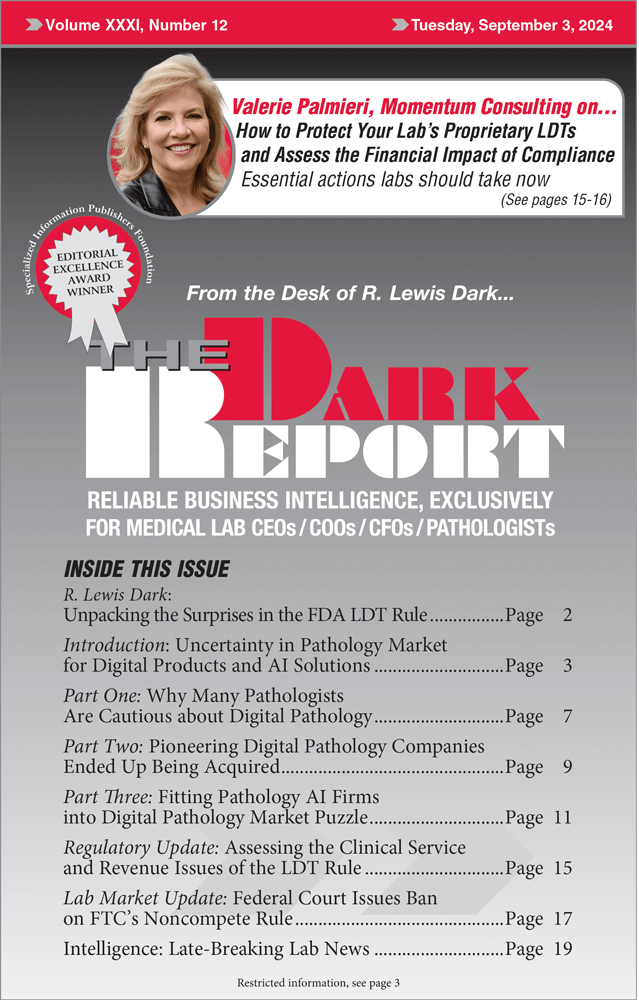TAG:
Laboratory quality management system
A quality management system (QMS), as required by ISO 15189:2012, is a compilation of organizational documents that establishes the policies and procedures needed to direct and control an organization with regard to quality. It relates to general management activities, the provision and management of resources, the pre‐examination, examination and post‐examination processes and evaluation and continual improvement.
A QMS captures the requirements of an organization and structurally provides a roadmap that explains who, what, when, where and how sustainable and repeatable outcomes will be achieved.
A quality management system consists of policies, procedures, SOPs and records, all of which provide proof of goals, assign responsibility, describe how those responsibilities are be performed and provide evidence of past accounts or occurrences of compliance.
It is a system by which an organization aims to reduce and eventually eliminate nonconformance to specifications, standards, and customer expectations in the most cost effective and efficient manner.
Use of quality management systems by innovative clinical laboratories and pathology groups enables them to drive impressive gains in quality, customer satisfaction, and financial performance. This is a key development at a time when medical laboratory budgets are shrinking and more cuts in lab test prices are expected.
On all fronts of laboratory medicine, requirements are becoming more stringent. Each year, labs find themselves held to higher standards for compliance with both Clinical Laboratory Improvement Act (CLIA) requirements and Medicare accreditation guidelines. This situation will become further complicated as clinical labs face the need to also meet the requirements of accountable care organizations (ACOs) and similar models of integrated clinical care. Early adopters are responding to these marketplace dynamics by making strategic use of a QMS to boost the performance of their clinical laboratory organizations. As they do, they often gain a competitive advantage.
OIG Reports Its Findings about CDC’s First COVID Test Problems
By Robert Michel | From the Volume XXXI, Number 1 – January 16, 2024 Issue
ONE MAJOR FAILURE BY FEDERAL AGENCIES in the first days of the COVID-19 pandemic was the development and release of an inaccurate and unreliable SARS-CoV-2 test, intended for use by public health labs. This was the finding of the U.S. Department of Health and Human Services (HHS) …
Lean Used to Lay Groundwork for Lab’s 15189 Accreditation
By Joseph Burns | From the Volume XXI No. 2 – February 3, 2014 Issue
CEO SUMMARY: Henry Ford Health System’s laboratory organization has become first in the nation to have all its laboratory sites “standardized under one source of leadership” and accredited to the standards of ISO 15189: Medical Laboratories. The journey to achieve this current state…
CURRENT ISSUE

Volume XXXI, No. 12 – September 3, 2024
This special intelligence briefing—presented in three parts—identifies the factors retarding a faster adoption of digital pathology. Also, how to protect your lab’s proprietary LDTs and assess the financial impact of compliance.
See the full table of contentsHow Much Laboratory Business Intelligence Have You Missed?
Lab leaders rely on THE DARK REPORT for actionable intelligence on important developments in the business of laboratory testing. Maximize the money you make-and the money you keep! Best of all, it is released every three weeks!
Sign up for TDR Insider
Join the Dark Intelligence Group FREE and get TDR Insider FREE!
Never miss a single update on the issues that matter to you and your business.
Topics
- Anatomic Pathology
- Clinical Chemistry
- Clinical Laboratory
- Clinical Laboratory Trends
- Digital Pathology
- Genetic Testing
- In Vitro Diagnostics
- IVD/Lab Informatics
- Lab Intelligence
- Lab Marketplace
- Lab Risk & Compliance
- Laboratory Automation
- Laboratory Billing
- Laboratory Compliance
- Laboratory Equipment
- Laboratory Information Systems
- Laboratory Management
- Lean Six Sigma
- Managed Care Contracts
- Molecular Diagnostics
- Pathology Trends
- People
- Uncategorized

